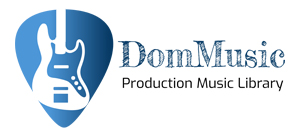|
Music libraries were once the very last resort for music by supervisors and producers looking for music placements in their film and television projects. Libraries were quite simply thought of as the bastard children of the music industry. Today however, music libraries are quickly becoming more and more relevant by asserting themselves as legitimate competition to the record labels and major music publishers. The growing force of music libraries is evident in several areas, but nothing demonstrates this more dramatically than the fact that major music publishers have been scrambling to acquire the most prominent music libraries.
Very recently, Imagem Music Group acquired 5 Alarm Music. In 2010, Warner Chappell Music, the global music-publishing arm of Warner Music Group Corp, acquired Nashville’s 615 Music, Groove Addicts Production Music Library and London-based Carlin Recorded Music Library and in 2007 they acquired Non-Stop Music. Also in 2007, Universal Music Group, which already owned Firstcom and Mastersource, acquired Killer Tracks through its acquisition of BMG. In 2009, Sony ATV Music acquired Extreme Music.
All of these acquisitions seem to indicate that these renowned libraries have something that the major publishers want and need. But the question remains– What could a music library possibly have that a company with a catalog as large and prestigious as, say Warner/Chappell, need?
The answer is certainly complicated and multifaceted, but I believe that there are three major reasons for the flurry of recent library acquisitions;
** First–Music libraries have a track record for being able to get music placements in cross media projects and are therefore currently attracting some of the hottest new, up and coming indie acts;
** Second–Due to new technology, music libraries are able to provide high quality music at lower price points making them fierce competition for the major record and publishing companies;
** And Third, and possibly most importantly, in order to provide excellent service to their clients, libraries have created catalogs that cover almost every possible genre a music supervisor might need, making them a one stop shop.
With the proliferation of affordable home recording equipment today, there are more and more unsigned bands than ever before. Due to this rapid influx of unsigned artists, coupled with declining record sales, publishers and record companies are more overloaded than ever, and often do not have the time to sift through the mountains of music to find the gems nor do they have the resources to develop and market all of these talented new artists. There is therefore a plethora of extremely talented, yet unsigned and un-published, bands and music artists who are seeking to get their music “out there.” These indie artists are now seeking out music libraries to help them market their music to film and television.
This trend to feature unknown “indie” acts in television programming actually began in the mid 90’s, with hit TV shows like “Dawson’s Creek” and “Party of Five.” As a result of the exposure in these shows, many of these bands quickly crossed over into the mainstream. Because of this phenomenon in the mid nineties, along with the decline of physical CD sales, indie bands are today more eager than ever to have their music featured in film and television. Music libraries have become one of the easiest and most successful ways to get that to happen.
Just as artists are able to create high quality music due to affordable recording technology, so, too, can libraries. Libraries which often have a vast network of songwriters, musicians and vocal artists at their disposal can quickly create high quality music at lower prices, thus allowing them to offer competitive licensing fees to diverse film and television projects.
Indeed, in today’s economy, with budgets for placing music within entertainment properties more and more constrained, affordable high quality music is more important than ever before. This allows music supervisors, producers and creative directors seeking “cool” music to come to library companies and not have to spend an arm and a leg on a “famous” song. In such a scenario, everyone wins; the indie artists get exposure and get paid, the library makes money, and the production company gets great music with less expense, and also acquires some “indie cred” in the process.
Along with being able to provide high quality music at affordable prices, a network of indie artists, and a need to stay as current as possible (to compete with the larger music publishing companies), music libraries can quickly create music with the hottest “new sound” before production companies even know they are looking for it.
Music libraries know that in order to compete, they must have music that will fit every possible use. Libraries therefore create this music before it is even requested. When they do not have a certain type of music at hand, some libraries will even create something specifically for the project. Libraries know that their reputation for being able to deliver “anything and
Everything” that a project may need quickly and affordably is the only way to thrive in this competitive business. Coupled with their strong attention to the needs of their clients, Music Libraries have continued to become even stronger and more of a force to be acknowledged.
Libraries have been working steadily in this business for many years, but because of their status, they have had to work harder and faster, and usually under the radar. However, clearly today, this hard work is paying off. The fact that the major music publishers have recently acquired so many of the top music libraries demonstrates that libraries have something that the publishers cannot duplicate and therefore must buy. This reinforces the premise that Music Libraries have not only “Arrived” but have today become “Power Players” within the entertainment, advertising and broadcasting industries.
|


